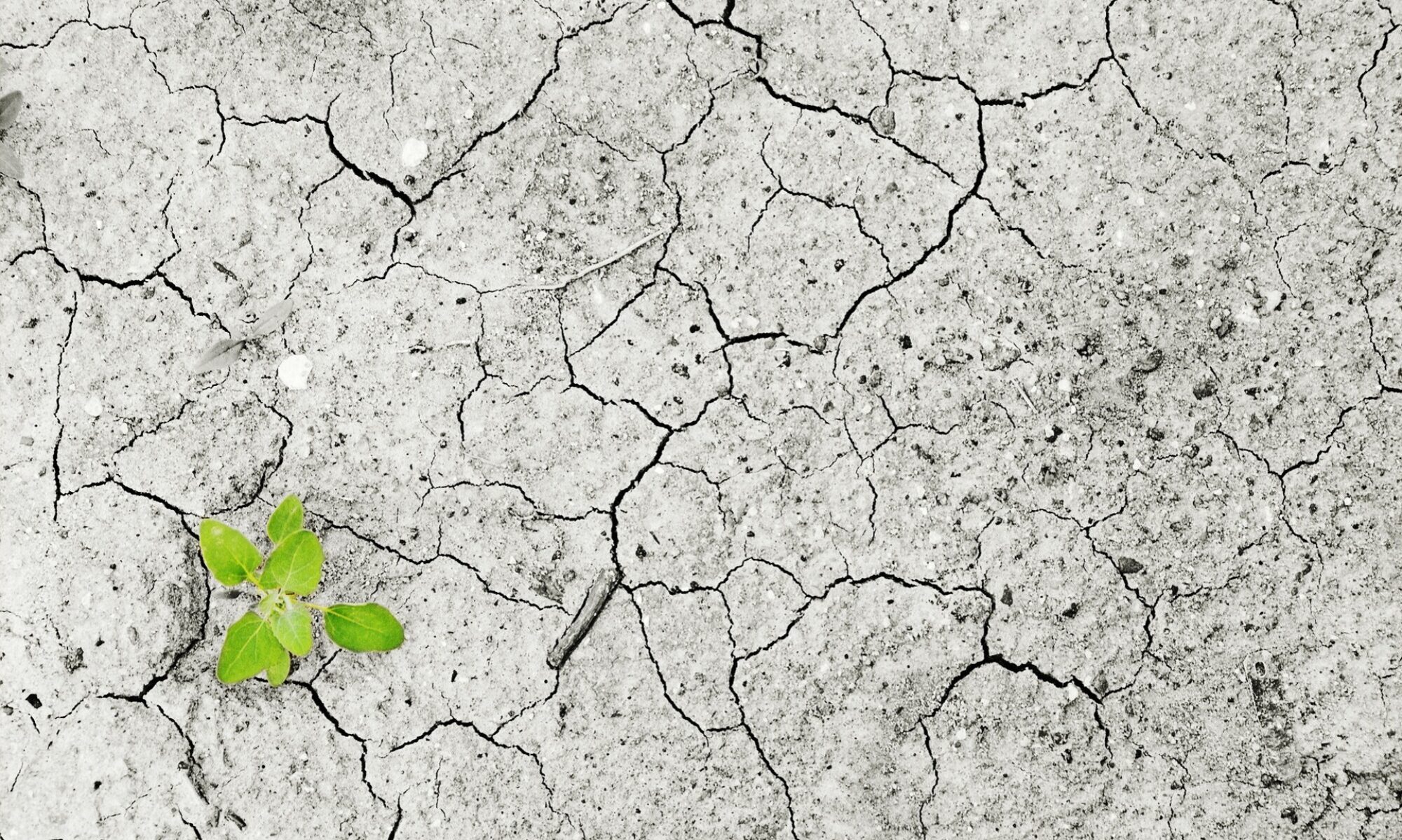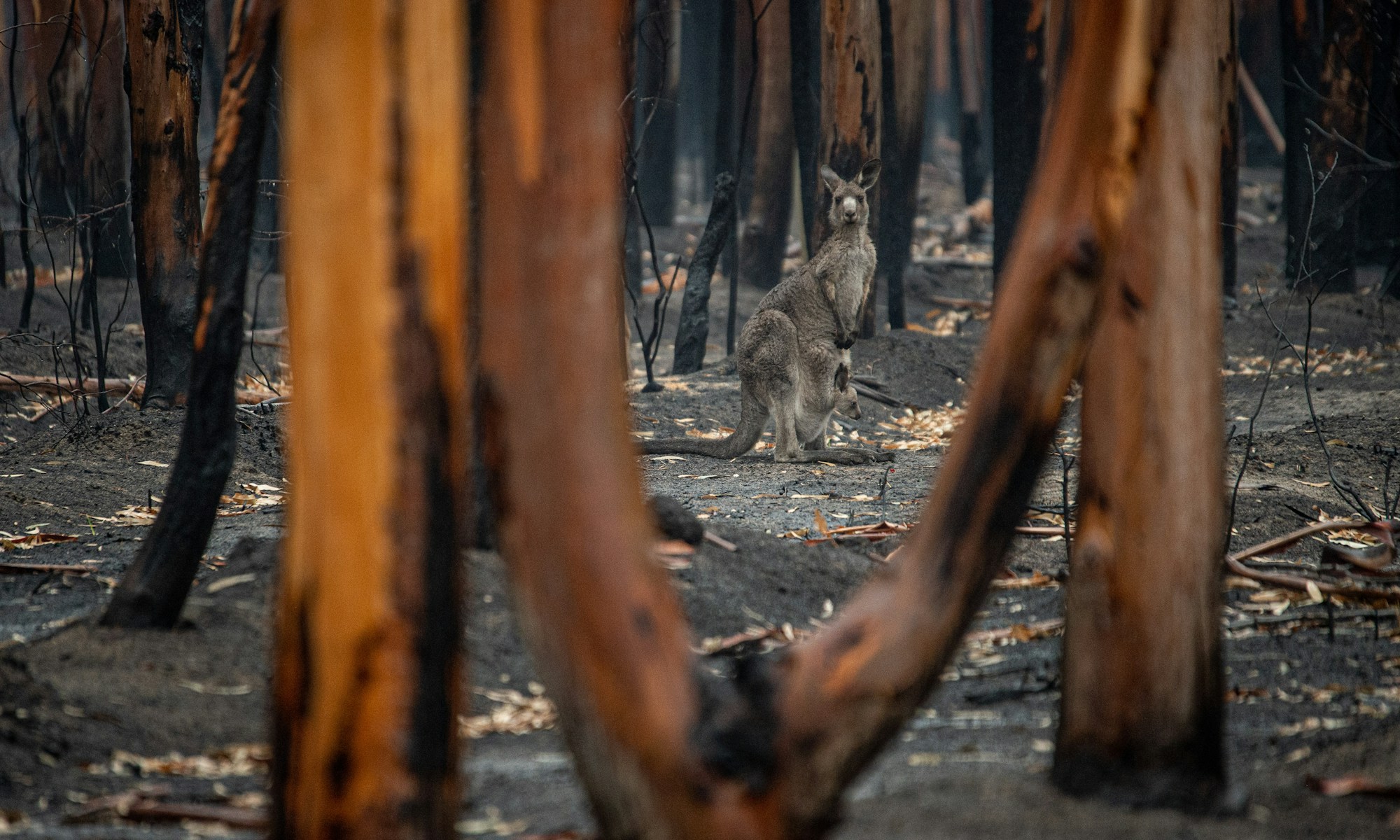4 February 2021 – by Gabriela Freeman
One year ago, Australia was hit by a bushfire season of unprecedented scale and intensity, causing widespread environmental destruction and loss of property, and life. Now eclipsed by the COVID-19 pandemic and the Trump-Biden election, last year’s devastating phenomenon is becoming a distant memory. Though this does not mask the reality that thirty-three human lives were lost, over 3,000 homes were destroyed,[1] and three billion animals were killed or displaced.[2]
I was living in Canberra, Australia, during what is now colloquially known as the ‘Black Summer’. It felt as if the apocalypse was near. For weeks, we lived in a cloud of yellow smoke through which, at times, you would be lucky to see a few metres ahead. As bushfire smoke carries hazardous particles, residents started wearing bulky P2 masks both in- and outdoors – mind this was pre-COVID times. The smoke permeated inside our houses, and many experienced respiratory issues, constant headaches and sore eyes. As fires approached borders, many residents had to evacuate their homes.

Every day we heard stories of family members, friends, and other Australians who fell victim to the bitter harvest of one of Australia’s worst bushfires. I have cousins who are farmers in New South Wales that lost over 700 sheep and cattle to the flames. While they stayed to defend their property against encroaching fires which saved the structure of the house itself, many other vital resources turned into ash. With hundreds of thousands of hectares of farmland burnt, countless other farmers suffered the same fate or worse, and will be recovering for years to come.
Roughly a week after the worst of the bushfires passed, and less than 24 hours after a massive dust storm blanketed entire towns and again blacked out the sun, Canberra was lashed with a severe hailstorm.[3] In the middle of summer and with bushfires burning across the country, golf ball-sized hailstones damaged thousands of cars, buildings, and trees, and injured or killed many animals.


Reparable damage to a car or house pales in comparison to stories from tiny Pacific island nations, whose residents have already permanently lost significant areas of liveable or arable land due to rising sea levels. Yet all of these extreme weather events are portents of impending climate crises which will continue to cause destruction and loss of life until drastic action is taken.
A climate migrant is forced to relocate when life in their current home becomes insupportable. As we are already seeing climate change-related disasters cause unsustainable living situations, it is no longer a hypothetical scenario for future generations to face, but a reality occurring within our lifetimes. These stories represent the beginning of such conditions that will only continually worsen, and ultimately result in an increase in climate migrants.
Current systems are failing climate migrants. Not only are governments and corporations neglecting to make the extreme policy changes necessary to halt climate change, but existing legal frameworks are insufficient to protect climate migrants in their plight. The international community has an obligation to undertake a reform agenda in this area, in order to afford increasing numbers of vulnerable climate migrants the protections they require and deserve. A bushfire season of this magnitude will certainly not be our last.

Gabriela Freeman is a soon-to-be lawyer and graduate of Law and International Relations from the Australian National University. Gabriela’s diverse cultural background and love of nature have influenced her twin passions for human rights, particularly for migrants and refugees, and the environment. She is committed to gaining the skills to effectively advocate for marginalised people, and meaningfully contribute to the climate justice movement. Outside of work, you can find her outdoors in the Australian bush, reading Richard Bach, or learning to play the drums.
[1] https://www.aph.gov.au/About_Parliament/Parliamentary_Departments/Parliamentary_Library/pubs/rp/rp1920/Quick_Guides/AustralianBushfires
[2] https://www.bbc.com/news/world-australia-53549936
[3] Images below by author Gabriela Freeman


